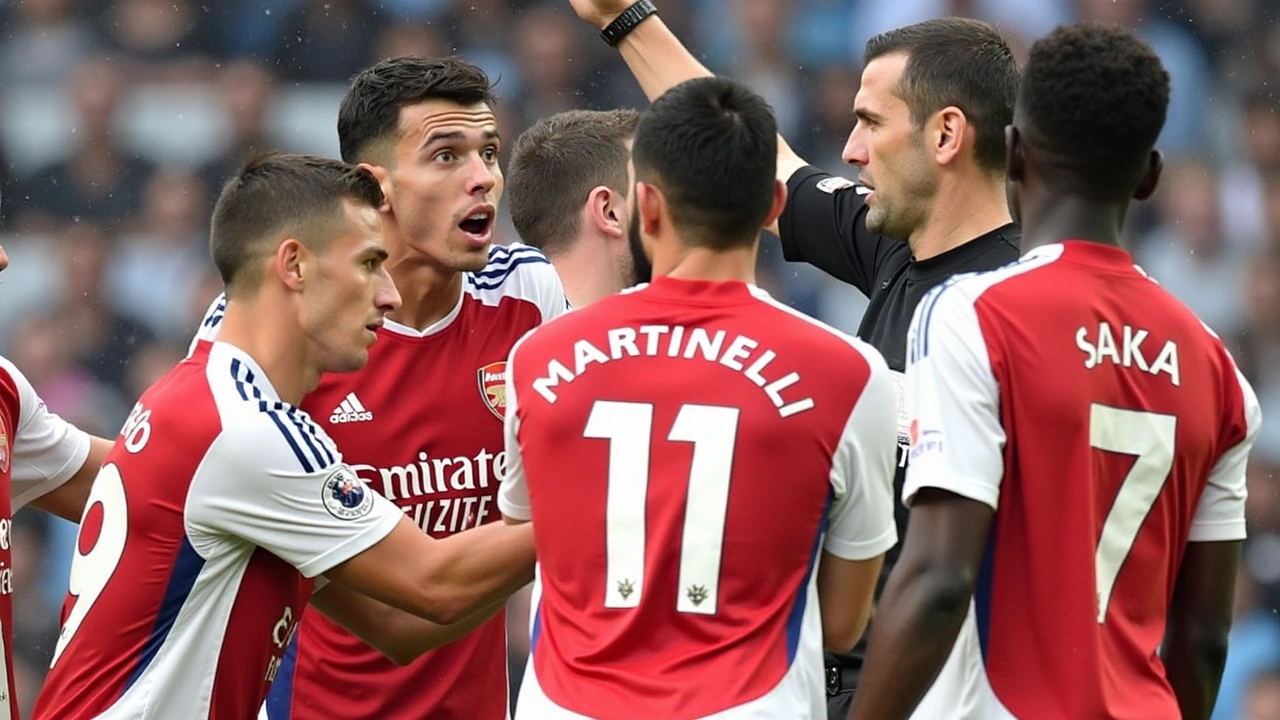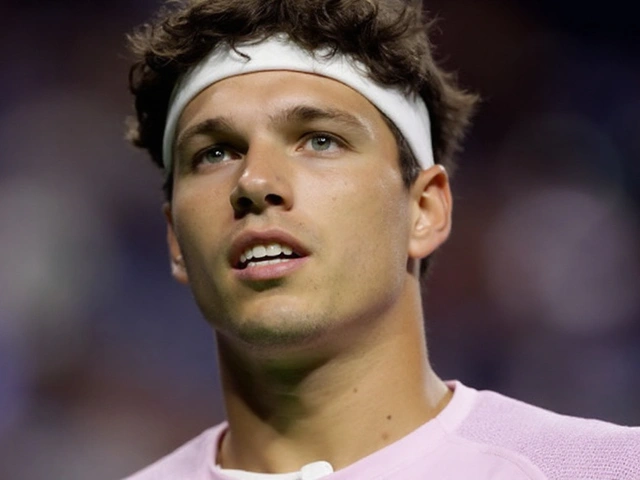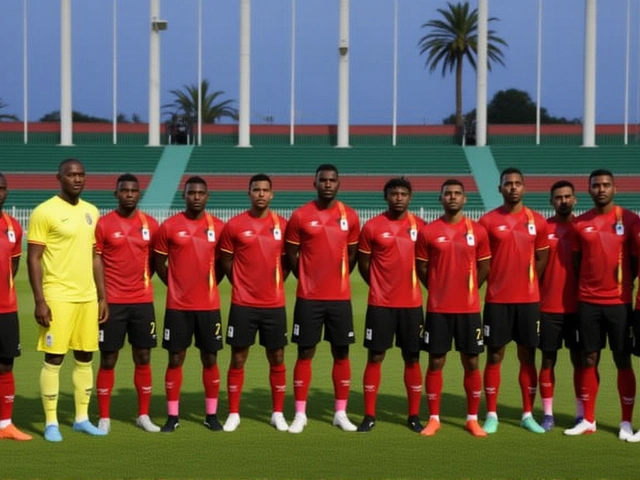
Manchester City vs Arsenal: A Match Defined by Controversial Decisions
The clash between Manchester City and Arsenal at the Etihad Stadium ended in a pulsating 2-2 draw, but it wasn't just the goals that captured the headlines. Several controversial decisions by referee Michael Oliver had a significant impact on the game's flow and ultimate outcome, drawing heated reactions from both sets of fans, coaches, and football pundits.
Kyle Walker and the Free-Kick Conundrum
One of the most talked-about incidents of the match involved Manchester City's Kyle Walker. Midway through the game, referee Michael Oliver called Walker over to discuss a free-kick with Arsenal's temporary captain Bukayo Saka. As Walker finished the discussion and jogged back to his defensive position, Arsenal seized the opportunity and took the free-kick quickly. This unexpected move caught City's defense off guard, allowing Riccardo Calafiori to notch an equalizer for Arsenal.
Manchester City manager Pep Guardiola was visibly frustrated, arguing that Walker should have been allowed to return to his defensive spot before the free-kick was taken. Guardiola's displeasure was echoed by the City's bench and fans, who felt the timing of the free-kick had been fundamentally unfair. The goal injected new life into the game, but also introduced an element of irritation and bewilderment among the City ranks.
Jeremy Doku's Controversial Moment
Another contentious moment came when Jeremy Doku kicked the ball away as Arsenal were awarded a free-kick on the halfway line. Doku's actions were visibly deliberate, yet he escaped without a booking. He later claimed he had merely attempted to pass the ball to an Arsenal player, an explanation that Oliver seemed to accept. This incident didn't sit well with fans and commentators alike, most notably Sky Sports pundits who questioned the referee's leniency.
The inconsistency in officiating became a talking point, with many arguing that Doku’s actions deserved at least a yellow card for unsporting behavior. The failure to penalize Doku added to the growing list of decisions that seemed to lack coherence, resulting in a simmering sense of injustice from Arsenal supporters.
Leandro Trossard's Harsh Red Card
The debate around officiating standards reached its peak when Arsenal's Leandro Trossard was sent off after receiving his second yellow card for kicking the ball away, mirroring an earlier incident in the season involving another Arsenal player. This decision raised eyebrows and drew criticism for its perceived harshness. Sky Sports pundit Jamie Carragher was particularly vocal, referencing a similar incident from last season involving Mateo Kovacic and Martin Odegaard, also officiated by Oliver, which had not resulted in a sending-off.
The inconsistency in Trossard's red card decision, compared to Doku's unpunished act, highlighted perceived flaws in the application of the rules. Pundits and fans debated the lack of uniformity in discipline, accusing the referee of bias or, at the very least, a lack of clarity in his decision-making process.
The Football Amidst the Controversy
Setting aside the controversial calls, the match was a spectacle of top-tier football. Erling Haaland opened the scoring for Manchester City with a well-executed strike, reminding everyone of his clinical prowess. The equalizer from Calafiori was a testament to Arsenal's resilience and tactical acumen, keeping the fans on the edge of their seats.
The 2-2 result reflects the intense rivalry and the high skill level of both teams. Each goal was a display of strategy and execution, showcasing why Manchester City and Arsenal remain formidable forces in the Premier League. However, the overshadowing controversial decisions add another layer to the narrative, ensuring that the match will be remembered for both its footballing brilliance and its officiating fumbles.
The game was a cocktail of emotions: joy, frustration, bewilderment, and excitement, all rolled into one. As the dust settles, fans, players, and pundits will continue to dissect these key moments, scrutinizing every decision and its impact on the game.
Looking Ahead
As Manchester City and Arsenal forge ahead in their campaigns, the lessons from this intense encounter will linger. For City, the focus will be on tightening up defense strategies to prevent such quick free-kicks from catching them off guard. For Arsenal, the resilience shown in the face of adversity will serve as a confidence booster.
The broader implications for Premier League officiating standards are also worth discussing. How can referees ensure more consistency in their decisions? Will the controversies from this match prompt any changes in the way games are officiated? Only time will tell.
In the end, while football is a game of skill and strategy, it is also a game that lives in the moment. And sometimes, those moments are defined by more than just the goals scored but by the decisions that lead to them.
13 Comments
Write a comment
More Articles

Jennifer Lopez and Ben Affleck Call It Quits: Deep Dive into Their Rekindled but Short-Lived Romance
Jennifer Lopez and Ben Affleck have filed for divorce after two years of marriage, ending their rekindled relationship that began over two decades ago. The couple first got engaged in 2002 but separated in 2004 due to media scrutiny. They reunited in 2021 and married twice in 2022, but faced challenges leading to their separation in April 2024. This marks the end of a highly publicized romance.

Ben Shelton’s Stunning Masters 1000 Win Sets Up High-Stakes US Open Run
Ben Shelton powered to his first ATP Masters 1000 win in Toronto, becoming the youngest American to do so since 2004. Now ranked World No. 6, Shelton eyes ending the American men's Grand Slam drought with newfound confidence and a stronger mental game ahead of the US Open.

Jitendra Singh
September 23, 2024 AT 23:50Wow, referee’s grammar lesson, was more thrilling than the match!!!